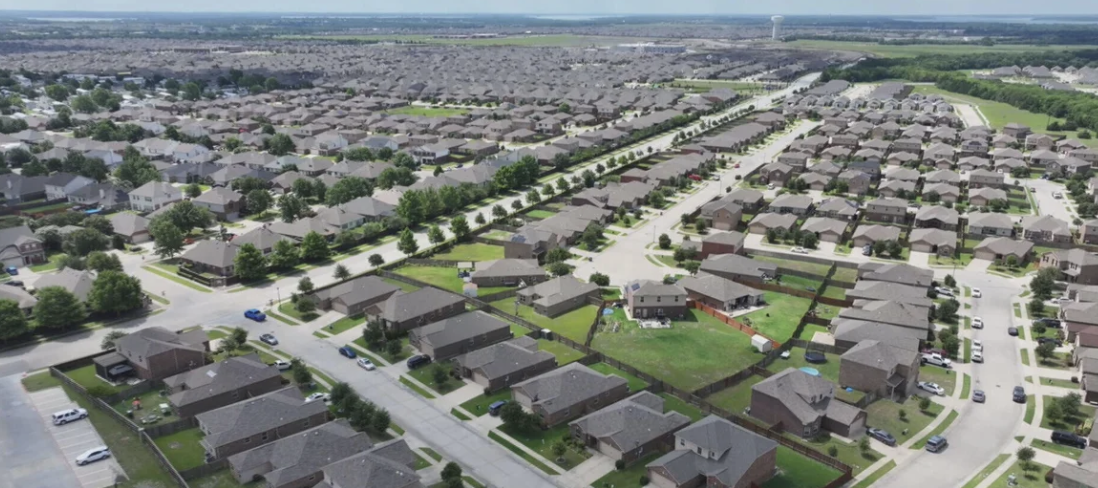Should You Buy a Home Even When Mortgage Rates Are High? 5 Reasons to Say Yes
The real estate market is a topic that never seems to leave the headlines, and one of the most talked-about factors influencing it is mor

Should You Buy a Home Even When Mortgage Rates Are High? 5 Reasons to Say Yes
The real estate market is a topic that never seems to leave the headlines, and one of the most talked-about factors influencing it is mortgage rates. For many potential homebuyers, rising mortgage rates can be intimidating, causing them to question whether it's the right time to invest in property. However, while it's natural to focus on interest rates, there are plenty of compelling reasons to buy a home even when mortgage rates are high.
In fact, buying during a time of higher interest rates might actually present some unique advantages. While no one enjoys the thought of paying more interest on their loan, homeownership provides long-term benefits that outweigh temporary fluctuations in mortgage rates. Plus, the market tends to balance itself out in other ways when rates go up, presenting opportunities that may not exist in a low-rate environment.
In this blog, we’ll discuss four reasons why you should consider purchasing a home—even if mortgage rates are higher than you’d like. From building equity to taking advantage of market conditions, we’ll break down how buying a home can still be a smart move regardless of the rate environment.
1. Building Equity Beats Renting Long-Term
One of the most significant advantages of buying a home is building equity, which you simply cannot do as a renter. Even when mortgage rates are high, purchasing a home allows you to start building wealth over time. Each mortgage payment you make contributes to your equity, the portion of your home that you truly own, and that increases as you pay down your loan.
Renting, on the other hand, means you’re essentially paying for someone else’s mortgage. While renting might seem like a safer option when interest rates are high, it's important to remember that rental costs are also subject to change, often rising over time. When you rent, your money isn’t working for you. But when you buy, even at a higher mortgage rate, you're investing in something that can grow in value over time.
Additionally, homeownership can provide a sense of financial stability. Fixed-rate mortgages lock in your monthly payments for the long term, meaning you won’t face the unpredictability of rising rent prices. Over the years, the value of your home is likely to increase, and you’ll eventually pay off your mortgage—giving you a valuable asset that could be worth significantly more than you paid for it.
Pro Tip: If you're hesitant about buying a home due to high mortgage rates, consider the long-term picture. Even if your initial mortgage rate is higher, your property will likely appreciate in value, and building equity through homeownership provides lasting financial benefits.
2. Home Prices Tend to Stabilize or Fall When Rates Rise
One common misconception is that high mortgage rates make buying a home unaffordable. While higher interest rates do increase the cost of borrowing, they also tend to cool down the housing market, leading to more stable or even lower home prices.
During periods of low interest rates, competition in the housing market tends to intensify. Buyers flood the market, driving up home prices and making it harder to find a good deal. Conversely, when mortgage rates rise, many potential buyers pull back, reducing competition and putting downward pressure on home prices.
This market dynamic presents an opportunity for savvy buyers. With fewer people bidding on homes, you may have more negotiating power and a better chance of securing a property at a reasonable price. Plus, when home prices stabilize or drop, it can make up for the higher interest rate, allowing you to get more value for your money in the long run.
Pro Tip: Keep an eye on the market and consider buying during a time when interest rates have reduced the number of active buyers. You might find that you’re able to purchase a home for less than you would in a low-rate, highly competitive market.
3. Refinancing Is Always an Option When Rates Go Down
One of the best things about securing a mortgage is that you’re not locked into your current interest rate forever. If mortgage rates drop in the future, you have the option to refinance your loan and take advantage of the lower rates.
Refinancing involves replacing your existing mortgage with a new one that has better terms, such as a lower interest rate. When done correctly, refinancing can save you thousands of dollars over the life of your loan by reducing your monthly payments and the overall interest you’ll pay.
So, while it might feel like you’re committing to a higher rate at the moment, it's important to remember that refinancing gives you a second chance to lower your costs down the road. In fact, many homeowners purchase property during times of higher interest rates with the understanding that they’ll refinance once rates drop. This allows them to get into the home they want now while still benefiting from future rate cuts.
Pro Tip: Stay informed about mortgage rate trends and consider refinancing when rates decrease. In the meantime, focus on finding a home that fits your needs and budget, knowing that refinancing is a viable option in the future.
4. Real Estate Is a Long-Term Investment
When it comes to real estate, it’s important to think of your home as a long-term investment. While high mortgage rates might affect your monthly payments in the short term, the overall value of your investment is likely to grow significantly over time.
Historically, real estate has proven to be one of the most reliable long-term investments. Home values tend to appreciate, meaning that the property you buy today will likely be worth much more in the future. This appreciation allows you to build wealth through homeownership, even if the initial costs of borrowing seem high.
Over time, inflation often works in favor of homeowners. As the cost of living rises, so do home values and rental prices. However, with a fixed-rate mortgage, your monthly payments remain consistent, protecting you from inflationary increases in housing costs. Meanwhile, the value of your home increases, providing you with a growing asset that can be sold or used to leverage future investments.
Even during times of economic uncertainty, real estate remains a stable and valuable asset. High mortgage rates might slow down the pace of appreciation in the short term, but over the course of several years, home values typically increase, making your property a sound financial investment.
Pro Tip: When you buy a home, think about the long-term potential of the property. Consider the neighborhood, future development plans, and the overall growth of the area. Even if mortgage rates are high, real estate’s long-term appreciation can significantly outweigh the initial costs.
While high mortgage rates can be intimidating, they shouldn’t deter you from buying a home. The long-term benefits of homeownership—such as building equity, gaining financial stability, and taking advantage of market conditions—make it a smart investment even when borrowing costs are higher.
Remember, home prices tend to stabilize when rates rise, giving you an opportunity to buy at a more favorable price. Plus, the ability to refinance in the future offers flexibility, allowing you to lower your interest rate when the market shifts.
Ultimately, real estate is a long-term investment that provides lasting value. If you’re ready to take the plunge into homeownership, don’t let mortgage rates hold you back. Focus on the bigger picture and consider the many ways that buying a home, even in a high-rate environment, can benefit you both now and in the future.






